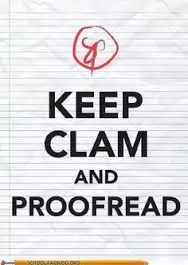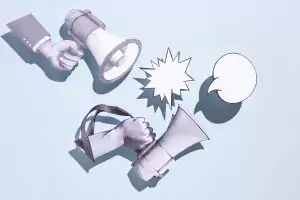
✅ AI Essay Writer ✅ AI Detector ✅ Plagchecker ✅ Paraphraser
✅ Summarizer ✅ Citation Generator
 One of my recent posts was dedicated to some writer’s essentials (I mean, recommendations) following which can make your life as a writer a little easier. Today, I would like to continue this topic and give some more advice I’ve tested on myself (and my close friends).
One of my recent posts was dedicated to some writer’s essentials (I mean, recommendations) following which can make your life as a writer a little easier. Today, I would like to continue this topic and give some more advice I’ve tested on myself (and my close friends).
(By the way, before proceeding to read, check out my previous list of essentials)
1. Pay attention to your punctuation. Here, I am not talking about just commas and semicolons—it’s also grammar, and I hope you, as a writer, know the technicalities thoroughly. I am talking, however, about those punctuation marks that can convey a speaker’s mood: exclamation marks and ellipses. As Elmore Leonard said, use no more than two or three exclamation marks per every 100,000 words of prose you write. This is fair: exclamation marks often make your dialogues sound hysterically and unreasonably enthusiastic or cheerful, make your reader think a phrase was shouted out, and so on. In other words, exclamation marks can distort the meaning and tone of what is being said. Ellipses should not be overused for similar reasons: they can create a strong impression the author and characters communicate in hints, halftones, and reticence.
2. Leave something for your readers’ imagination. Sometimes, you may have such a detailed and clear image in your head, the temptation to describe all of it in details can be unbearable. Remember, however, the way it looks in your head, and the way your readers will see it can be different. Moreover, detailed explanations or descriptions are often tiring, or make readers feel like they are imposed to see/understand things one way or another. If you have ever read Madame Bovary by the French author Gustave Flaubert, then you should know how annoying it can get when instead of moving through the plot, you have to break through useless descriptions. A relieving truth is you do not need to be overly-caring—your audience can use their imagination.
3. No one is perfect. Alright, maybe there are writers who can write everything fine from the first attempt, but unless you are a genius, this scenario is unlikely. You will have to edit what you write; sometimes, you will have to edit it over and over again. I often see people (on Quora.com, or elsewhere) ask questions like, “Do I need to edit my writing?” Yes, you do. And it’s alright. It doesn’t make you worse a writer or a person. It’s a part of the writing process, so be comfortable with it.
Well, I hope these rules can help you in your writing.
Stay updated for more!
Follow us on Reddit for more insights and updates.




Comments (0)
Welcome to A*Help comments!
We’re all about debate and discussion at A*Help.
We value the diverse opinions of users, so you may find points of view that you don’t agree with. And that’s cool. However, there are certain things we’re not OK with: attempts to manipulate our data in any way, for example, or the posting of discriminative, offensive, hateful, or disparaging material.